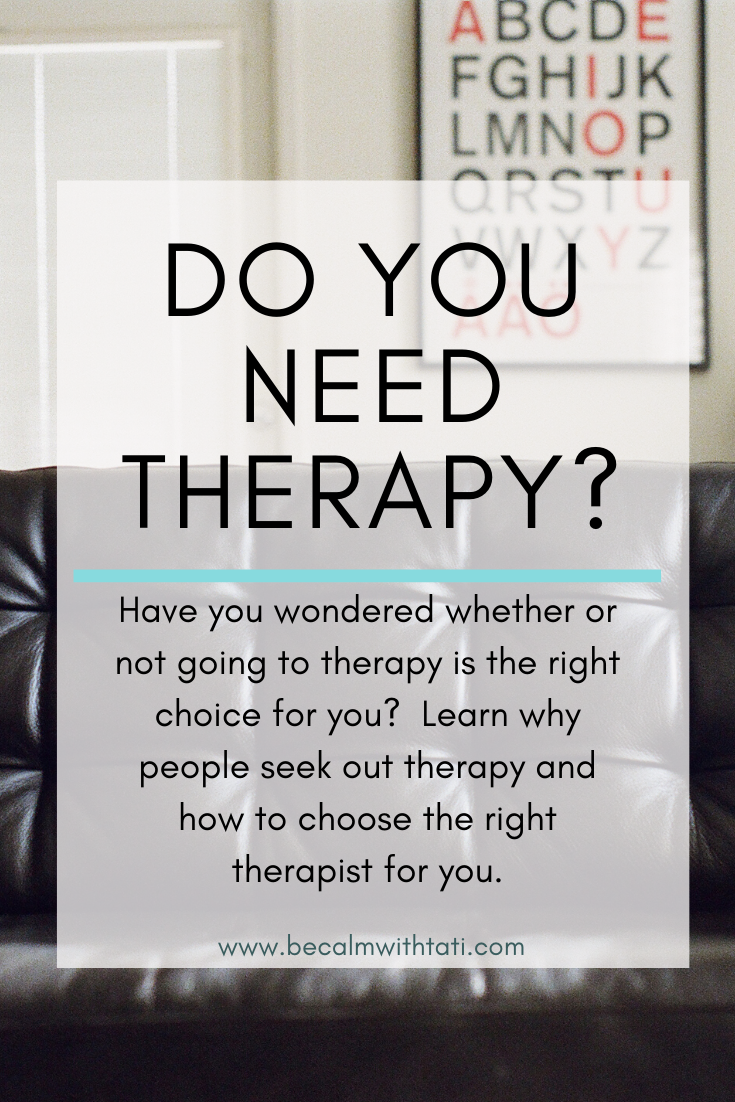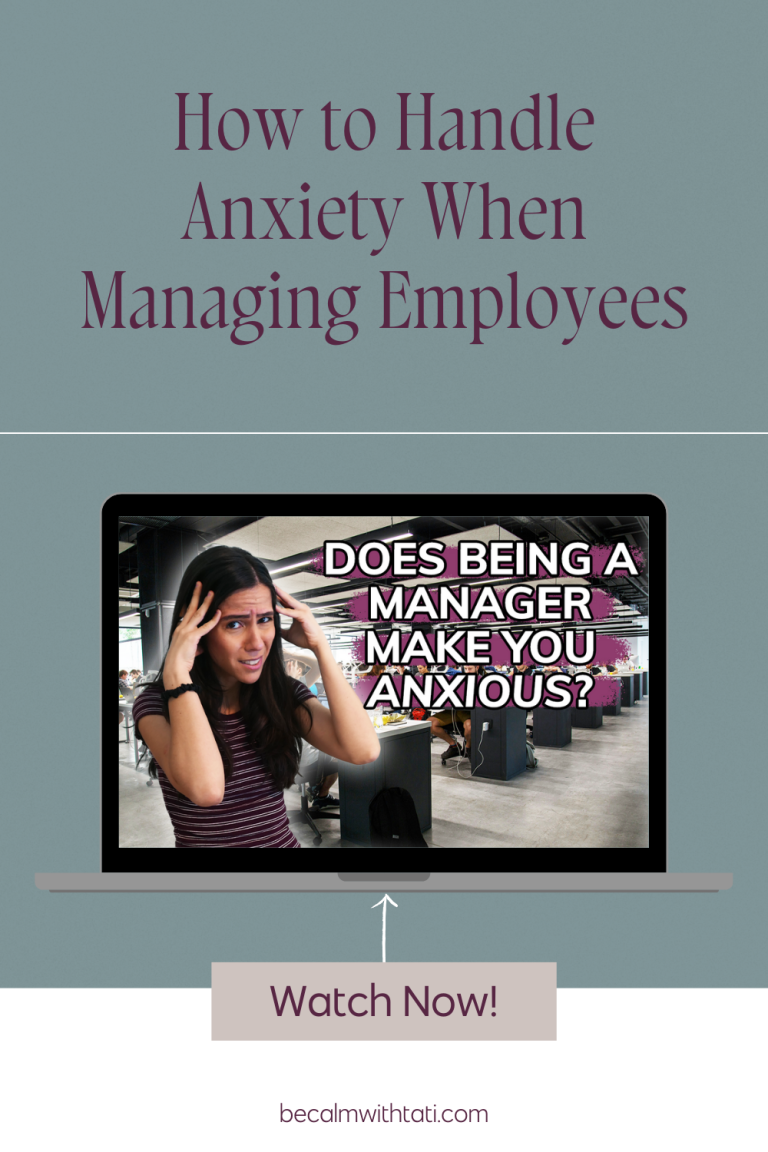If You Have Been Wondering Whether Or Not You Need Therapy, Keep Reading
The attitude that people have towards therapy has changed greatly over the decades.
Therapy is more than just the stereotypes and attitudes that people hold.
It is a way for a person to learn how to effectively manage their mental health and wellness.
How have you been feeling recently? Have you made the time to check in with yourself and your well-being?
The fact that you are reading this post can point to the fact that there is a part of you that wonders whether or not therapy can help you.
What Types Of People Attend Therapy?
Everybody. You do not have to be crazy to see a therapist. In fact, there are many successful, well-off people who attend therapy. There are also people who are struggling to find their way who attend therapy.
When you do not know what to expect, therapy can be a scary concept.
The first step is to determine whether or not you need therapy.
Step two is to decide where you should look to find a therapist.
Do You Need Therapy?
First, let’s try and determine if you do need to attend therapy. As a note, I may use both therapy and counseling interchangeably in this post. Some people view them as being different, but I believe there are more similarities than differences and I see them as one and the same.
If I told you that you needed therapy, you may take that as an insult. I am basically saying that you are not stable enough and need somebody to help you out, right?
I view things differently. A person who reaches out for therapy is strong. They are showing the will to work on and improve themselves. They are ready to start facing their struggles and difficulties and turn over a new leaf.
Seeking out therapy requires a lot of courage, not weakness.
You might want to make some changes to your perspective, state of mind, mood, or life circumstances. Maybe you have been feeling this way for a while, or it is only recent. And maybe you have been trying to work on things on your own, but you are searching for some assistance and a professional opinion. These are all good reasons to seek out therapy.
Have you noticed that your mental health is having a negative effect on your work, personal life, relationships, motivation, or outlook? Then it might be a good idea to look into therapy.
Additionally, if you have experienced any traumatic experiences recently or in the past that still cause you to experience physical and/or emotional reactions, you should look into therapy.
It is ultimately a personal choice whether or not you decide to go to therapy. The above situations are solely guidelines and do not cover every situation in which somebody can or should attend therapy.

What Type Of Therapist Should You Seek Out?
You might have heard of different terms thrown around for different types of therapy. Cognitive behavioral therapy, Psychodynamic, Gestalt…
Whether you have heard of them or not, what do these all mean? Do you really need to know what type of therapy you want before you see somebody?
Although there are many frameworks for therapy, ultimately it is the therapist him/herself who decides how to implement these frameworks. Like people in general, each therapist is unique and will add his or her own touch to how your sessions go.
I suggest choosing a therapist who speaks to you and your problems. Choose somebody that you feel comfortable with, whether that is somebody of a specific gender, age, or style.
It is okay to be picky because you will be sharing intimate details with this person. It’s important for you to feel comfortable.
Do You Need To See A Specialist?
There are many therapists who have specialties, such as working with couples, people with PTSD, anxiety, personality disorders, etc. But do you really need to see somebody with a specialty?
Part of the answer to this question depends on what type of problems you currently have and whether you have been in therapy before. In my professional opinion, it makes sense to see a specialist because they will have the most specialized knowledge to help you make positive changes.
Seeing a specialist can be really helpful so that you get the kind of focused guidance you need to cope and progress.
On the other hand, it is not necessary to see a specialist if you have found a good-fit therapist who is a generalist or has a specialty that may not exactly meet your needs.

Where Should You Look?
There are many places to look for therapists. Some of this decision depends on your financial means, health insurance, geographic location, and the type of therapist you are looking for.
Please contact your health insurance company if you plan on using your health insurance, regardless of which of the below options you go with. It is important to confirm that your insurance covers behavioral health services.
Private Therapists:
A simple Google search for a therapist in your area treating the problem you want help with can be a great place to start. You can also check out online listing sites for private practice therapists such as:
Seeing a private practice counselor is a good choice if you want an experienced therapist who is devoted to helping you. This is often because somebody in private practice has a long-term commitment to the business of their practice.
In addition, therapy can be much more flexible and less rigid in private practice because it is not necessary to cater to the state or organizational guidelines that are often present in larger companies.
A possible downside to seeing somebody in private practice can be the cost. If the individual you are going to does not accept insurance benefits, or you do not have insurance benefits, then you will have to budget for this.
Many times, the cost is an investment in yourself and can definitely be worth looking into if you have the financial means. Many therapists also offer a sliding scale to accommodate individuals with financial need.
Community Organizations:
You can certainly take the route of going to a community mental health organization. There is bound to be one in your area and they often service individuals from special populations (e.g., veterans, youth in foster care, individuals with a history of psychiatric hospitalization) at little or no cost to you.
The benefits of going to a community organization are that it will most likely be more affordable. In addition, you will receive support from trained professionals who are devoted to helping individuals in need and/or those who are struggling financially.
Online Counseling:
Online therapy has definitely gotten big recently. This is essentially where you have a video chat with your therapist. It tends to be inexpensive, easily accessible, and can work well if you live in a rural area where going to an office may be difficult for you.
You can find online therapists on any of the directories above, or by doing a Google search of online therapists in your state.
The benefits of online therapy (telehealth) are that it can be convenient if you have a packed schedule, or if you live remotely. This can be a good choice if ease of accessibility is your primary need.
If you live in the state of New Jersey, I offer online therapy for anxiety and high-functioning anxiety. You can learn more about working with me here.
Final Thoughts:
I cannot definitively answer the question of whether or not you need to go to therapy without having met you. Deciding to go to therapy and finding a therapist is a very personal endeavor, and I hope some of these tips have been helpful to you in deciding whether or not it is the right choice for you now.
Remember to keep in mind the effect your problems are currently having on your life and whether or not you have been able to cope with things on your own. If you feel like you need some extra support and assistance, it is time to decide which therapist feels like the right fit for you.
Please leave a comment below letting me know what your thoughts are on therapy and if this post was helpful for you.
Pin for later!

Do You Need Therapy or Coaching?
Download the free assessment (+ get access to my entire free resource library!)
By filling out the form above, you also agree to receive my newsletter with high-functioning anxiety resources and tips. Your information is kept private and you can unsubscribe at any time!













